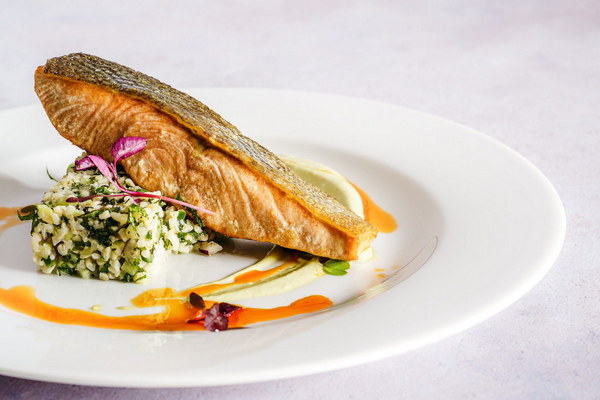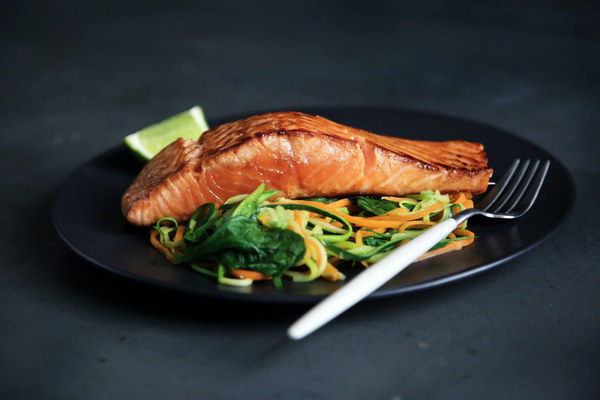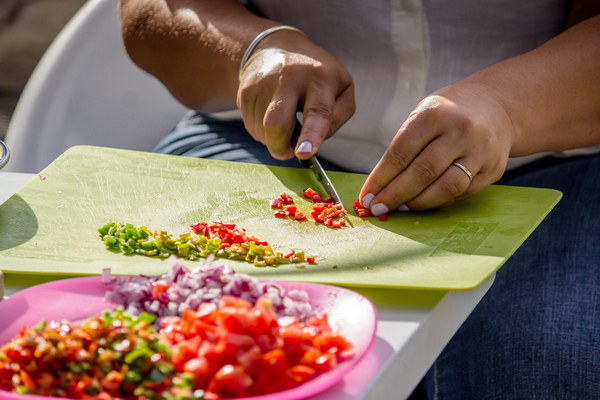Nourishing Your Body A Guide to Traditional Chinese Food Practices for the Frost's Descent
As the days grow shorter and the weather turns cooler, the traditional Chinese calendar marks the arrival of the 24th solar term - Frost's Descent. This season, which falls around October 23rd, is a time when nature begins to slow down and people are encouraged to pay attention to their health and wellness. One of the best ways to embrace this seasonal change is through dietary adjustments that align with the principles of Chinese medicine. In this article, we'll explore how to nourish your body according to the traditional Chinese diet for the Frost's Descent.
Understanding the Concept
According to Chinese medicine, each season corresponds to a particular organ system, and the Frost's Descent is associated with the lungs and large intestine. The focus during this time is on maintaining respiratory health, clearing excess heat, and supporting the body's defense mechanisms against the cold.
General Diet Tips for Frost's Descent
1. Warmth over Cold: Emphasize warm and cooked foods over cold or raw ones. This includes soups, stews, and warm grains like quinoa and buckwheat.
2. Balancing Yin and Yang: Aim for a balance between yin (cooling) and yang (warming) foods. This balance helps to prevent illness and maintain overall health.
3. Stay Hydrated: Drink plenty of warm liquids such as herbal teas, broths, and warm water to keep the body hydrated and warm.
Specific Foods and Herbs
1. Ginger: A staple in Chinese cuisine, ginger is known for its warming properties. It can be added to soups, teas, or as a spice to various dishes.
2. Honey: This sweetener is not only delicious but also has anti-inflammatory and immune-boosting properties. It can be used in herbal teas or as a topping for warm porridge.
3. Goji Berries: These are rich in antioxidants and are believed to strengthen the immune system. They can be eaten raw, added to smoothies, or used in herbal teas.
4. Seaweed and Sea Vegetables: These are high in iodine and other nutrients that support thyroid health, which is particularly important during the cold months.
5. Pumpkin: This is a nutritious and warming vegetable that can be used in soups, stews, and as a side dish.
Sample Menus for Frost's Descent
Breakfast
- Warm Oatmeal with Goji Berries and Honey
- Ginger Tea
Lunch
- Stir-Fried Tofu with Bok Choy and Carrots
- Quinoa Salad with Roasted Pumpkins and Almonds
- Herbal Tea: Peppermint or Elderberry
Dinner

- Beef and Vegetable Stew with Carrots, Potatoes, and Parsley
- Buckwheat Porridge with Dried Figs and Almonds
- Herbal Tea: Chrysanthemum or Peony
Conclusion
The Frost's Descent is a time to nurture your body with warm, nourishing foods that align with the changing seasons. By incorporating these traditional Chinese dietary practices, you can support your immune system, maintain your health, and prepare for the cold months ahead. Remember, the key is balance and variety, so enjoy the flavors and benefits of these seasonal foods.









